A new book penned by two University of Virginia School of Law students details the history of the University’s Jefferson Literary and Debating Society, the oldest student organization on Grounds, of which Edgar Allan Poe and Woodrow Wilson were members.
“Society Ties: A History of the Jefferson Society and Student Life at the University of Virginia,” by Thomas L. Howard III and Owen W. Gallogly, chronicles the lively, invitation-only group, whose goals have changed over the society’s almost 200 years of existence, but whose primary mission has been to help members test and refine their ideas through debate and discussion.
The book is published by the University of Virginia Press.
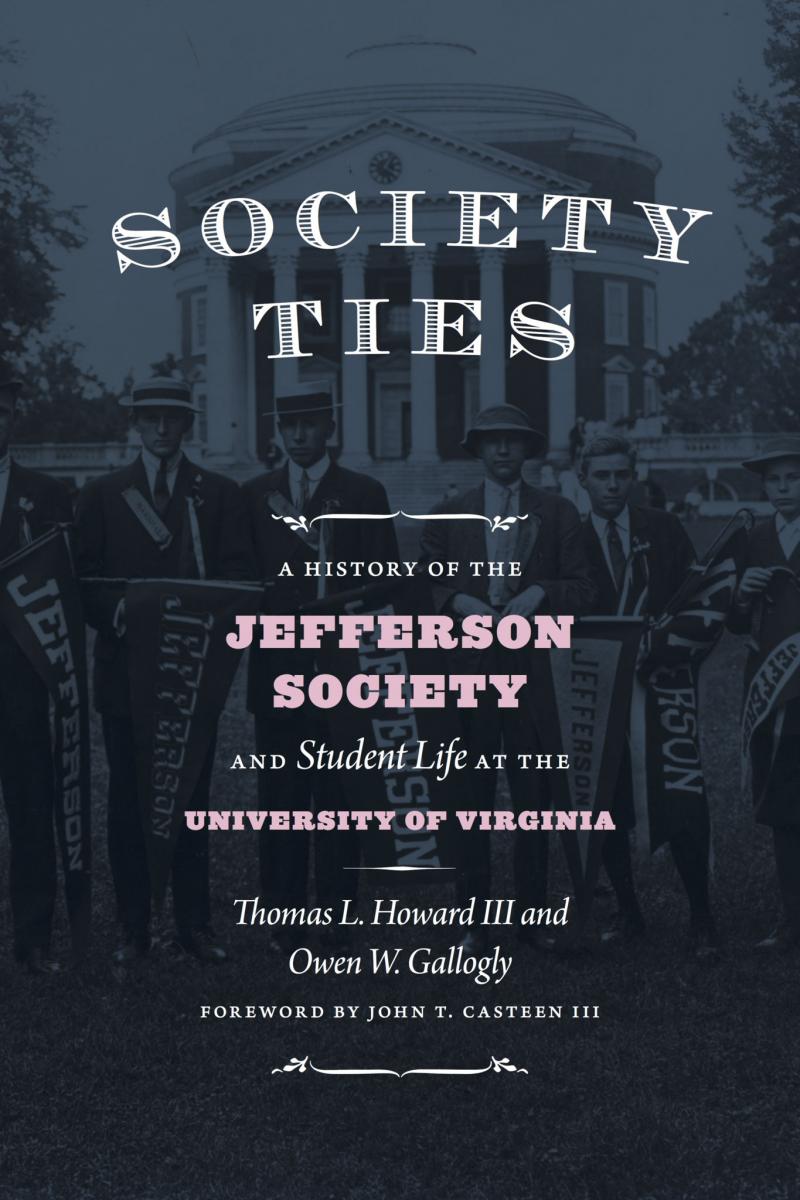
“From its inception the Jefferson Society provided a forum for the free and often heated exchange of ideas,” said Maurie D. McInnis, executive vice president and provost at the University of Texas at Austin, who co-founded Jefferson’s University — Early Life Project while at UVA. “Students debated controversial topics, from slavery and foreign policy to the role of public education, from sectional tensions to integration and coeducation — an important window into the shifting dynamics of American life.”
Literary societies were once the social hub of American universities. For those aspiring to government service or other public roles, the societies filled a void by offering practice in writing, oratory and debate — as well as the chance to win the esteem of one’s peers. The societies also offered formal ceremonies that universities did not for many years, such as graduation exercises.

Authors Gallogly and Howard, friends since childhood, are now entering their second year at UVA Law. They began research for the book in 2010, while they were UVA undergraduates and fellow members of the society. The group’s archives of about 30,000 documents had not yet been made available for research purposes. A formal project to enshrine the archives, funded by the Jefferson Trust, began in 2015 and is ongoing.
“We pushed to be able to use the archives ourselves,” said Howard, who earned his bachelor’s in history and his master’s in higher education at UVA. “It was a subsequent generation of students who went through the Jefferson Trust and got a grant to restore the documents and do a lot of the digitization and cataloging. When we did the bulk of our work, it was in disarray.”
The documents date back more than 100 years. Most of the society’s older records did not survive, because of the Rotunda fire of 1895.

Gallogly, who earned his bachelor’s in political science and history from UVA, said sorting through the filing cabinets on the second floor of Alderman Library, where the archives had been stored since the 1930s, presented a challenge: how to figure out where the most important information was.
“The society’s archives contained nearly 60 linear feet of largely unexplored materials,” Gallogly said. “There was no catalog or guide of any kind. We essentially had to start with the first drawer and work our way through, document by document.”
But despite the difficulty involved, the authors said the opportunity was one they couldn’t pass up.
“It was a chance to do substantive work in history,” Howard said. “We thought it would take about a year at the time; here we are seven years later.”
Working from meeting notes, letters, publications and other materials, the pair filled in new details about the society, whose meetings gained a reputation over the years for being a boisterous battle of wits among UVA’s brightest thinkers. The meetings have occurred in Jefferson Hall (Hotel C on the West Range) since 1837. For many years, a beer keg at the corner of the room was the social lubricant that loosened tongues.
Perhaps not surprisingly, Gallogly and Howard found the society’s records ran the gamut of sobriety.
On the more rigid side were the Wilson-era documents. The future president of the United States, who studied law at UVA from 1879-80 and was also president of the society, had a penchant for institutional organization, as evidenced by his contributions to the group’s constitution, still in place today, and in the governance structure he established for University of Virginia Magazine, which the society ran.
On the flip side, minutes from the 1970s leaned toward the jokey and unenlightening, they said.
Among the unexpected artifacts they found were informal minutes from the society’s consideration in 1964 of Wesley Harris, who would become the group’s first African-American member. Harris would also become the first student, black or white, to complete UVA’s engineering honors program. He is currently a professor at the Massachusetts Institute of Technology, where he has served as an associate provost.
“Scrawled in the margin of a draft budget from the semester Harris was elected to the society is a set of sparse notes titled ‘Membership,’ which likely only survive because they were written on a financial document,” the authors write. “They lay out a strikingly candid assessment of points in favor and against both integration and Harris himself.”
The merits of the bright engineer from Richmond, who was skilled in debate from his high school days and who could converse on classical music, existentialism and other topics of intellectual heft, won them over.
Today, the society, which maintains a body of about 200 active members, is demographically and ideologically diverse, has women and men serving in top leadership roles, and has no barriers to membership based on identity. Candidates still have to interview to be considered, however.
“The society that I joined as a first-year in undergrad is very different than the society that exists now, and that will happen again and again and again,” Howard said. “That’s one of the reasons it’s almost 200 years old. Everyone can make of it what they want.”
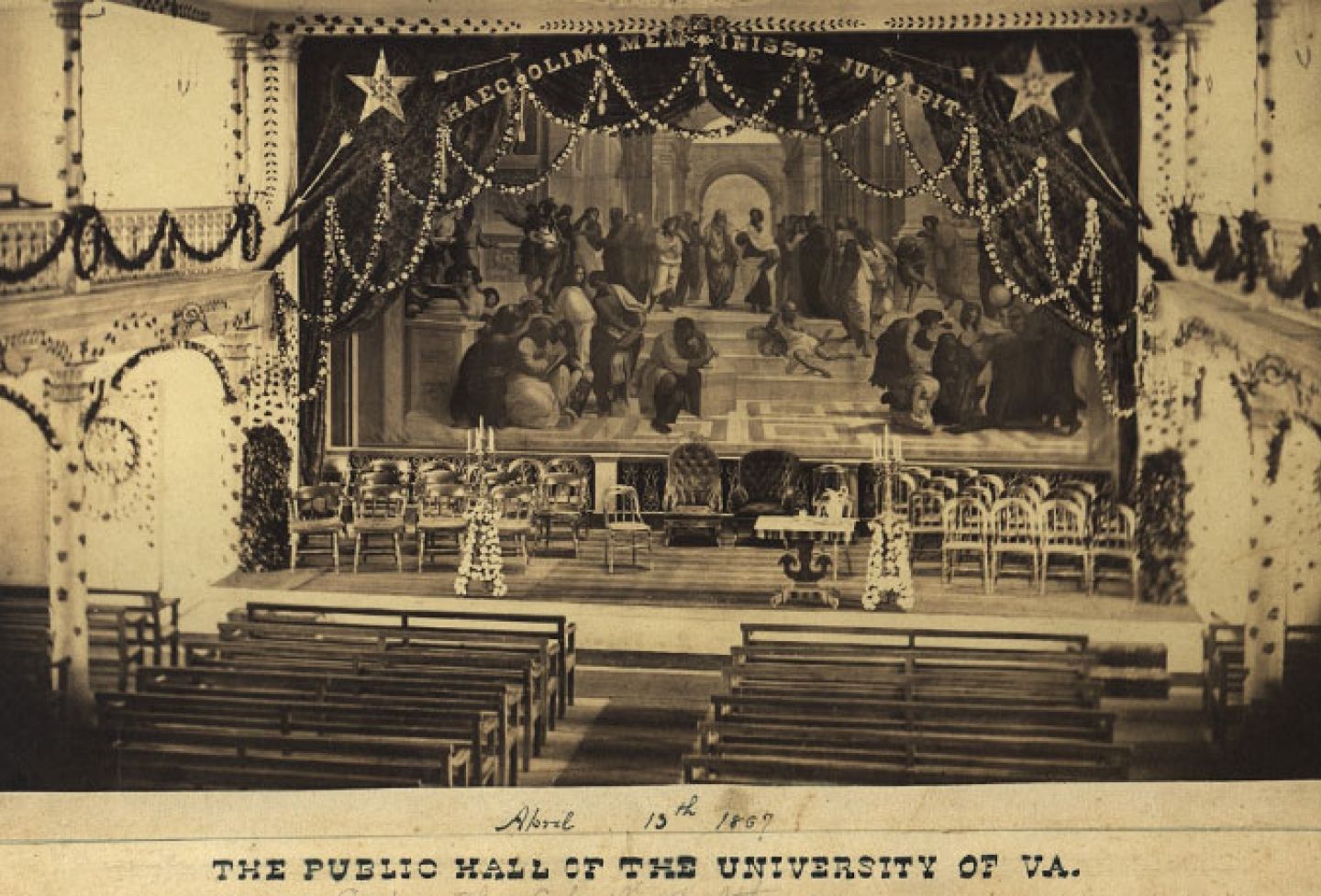
The Public Hall in the Rotunda Annex, shown decorated for Founder’s Day on April 13, 1867, was the site of many of the public celebrations hosted by the Jefferson Society in the second half of the 19th century.
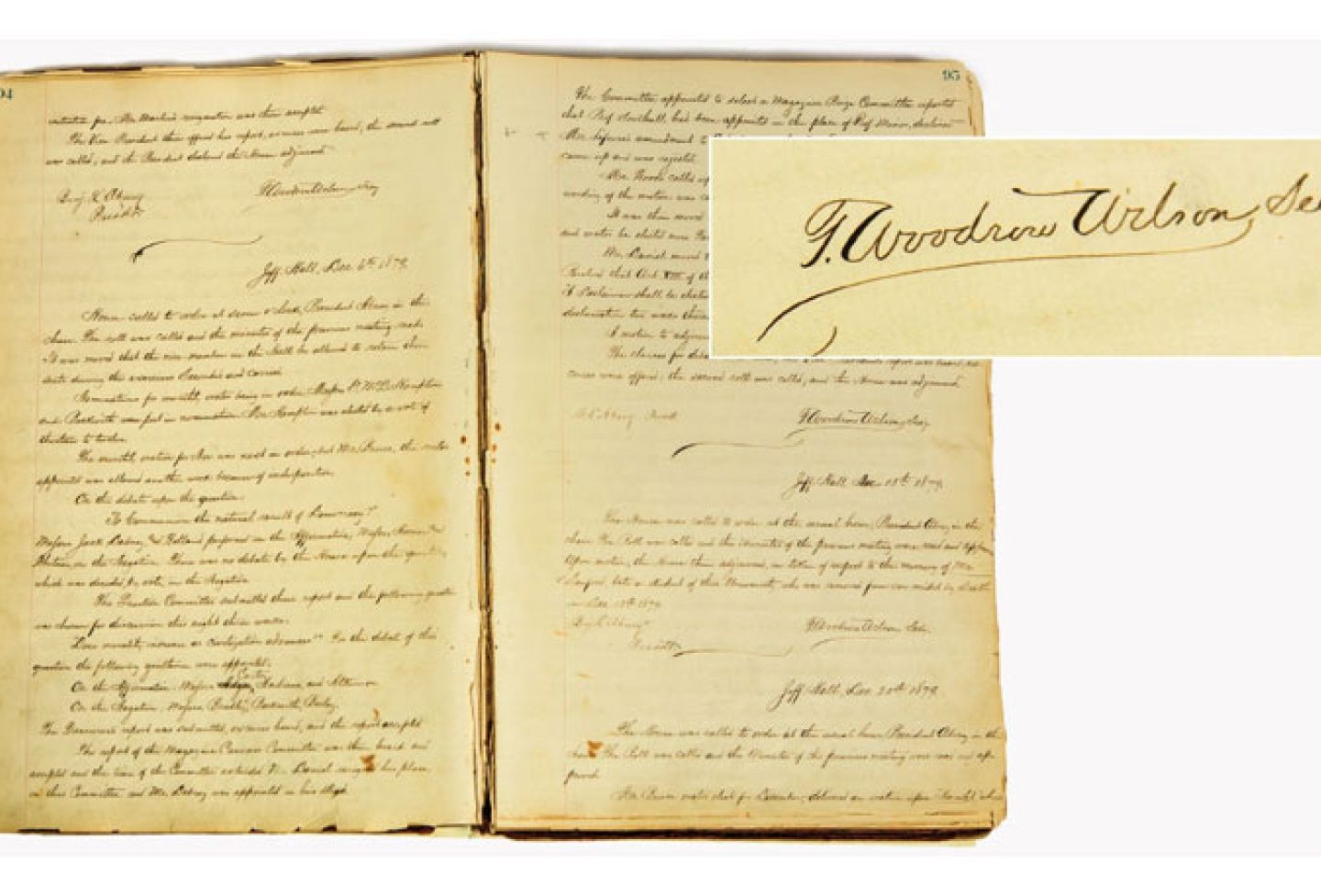
Future President Woodrow Wilson, who attended UVA Law, joined the Jefferson Society in October 1879 and was appointed secretary of the society the following month. Pictured is his minute book.
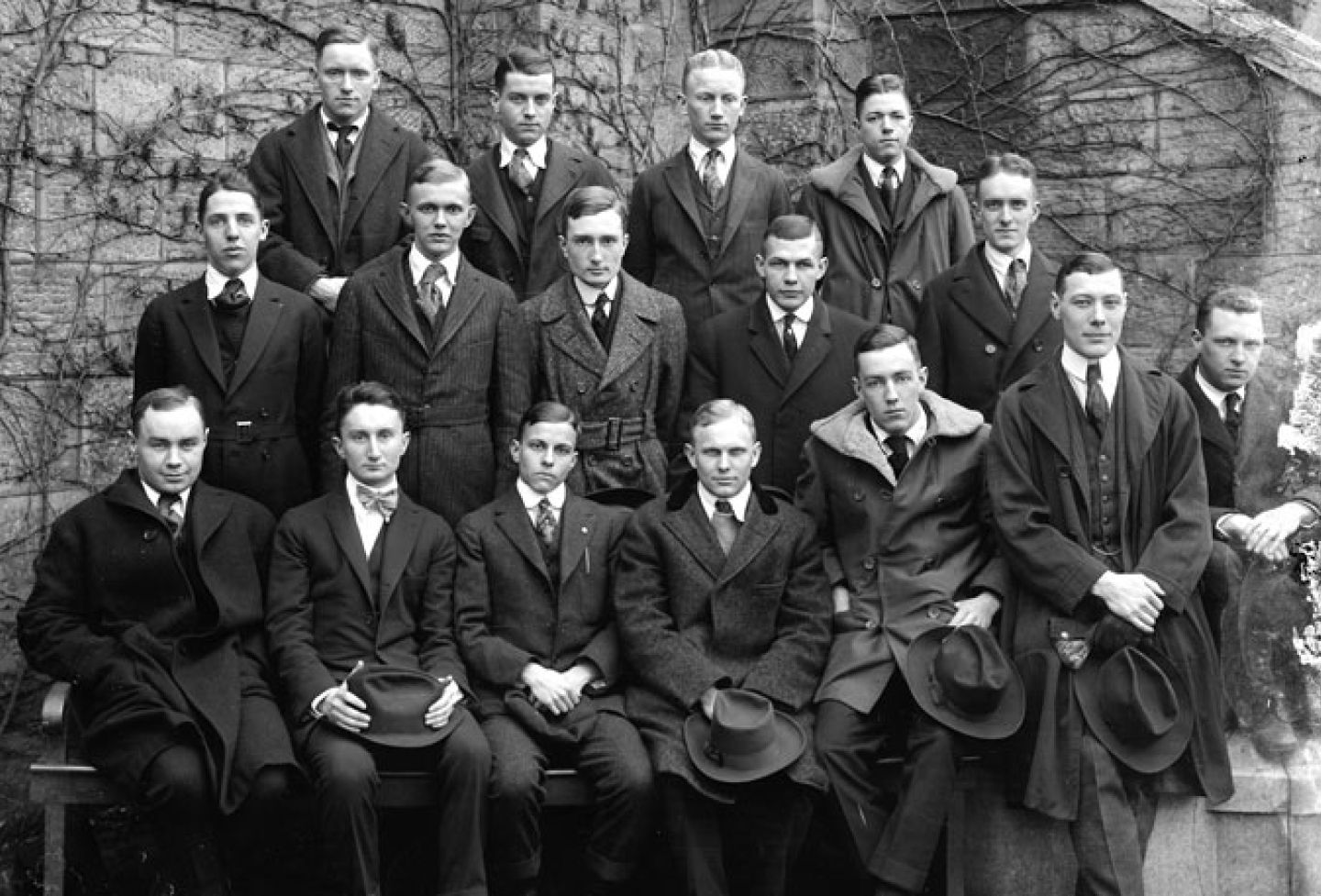
Members of the society posed in 1918.
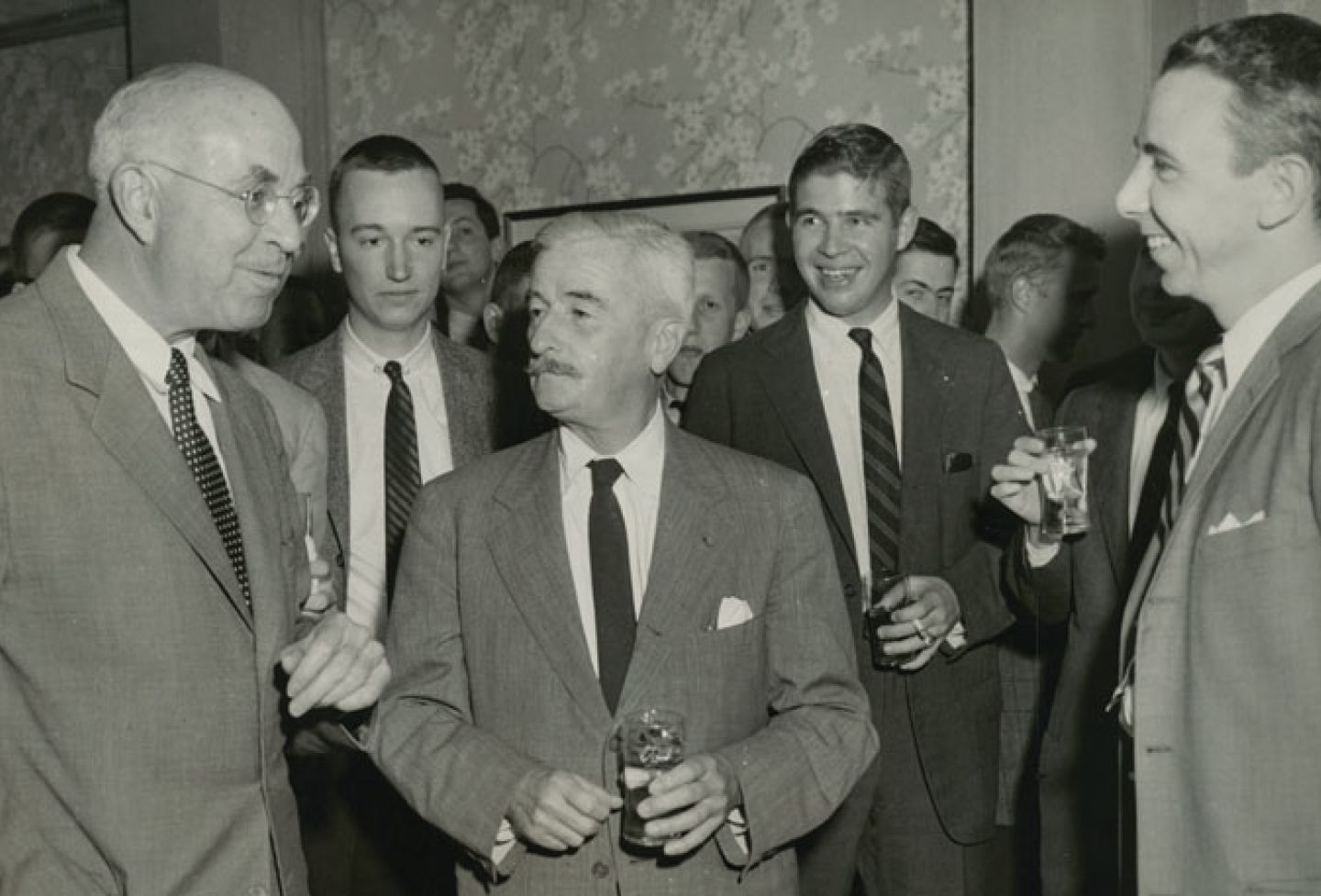
Authors William Faulkner, center, and John Dos Passos, left, at a reception in 1957 following a Jefferson Society lecture delivered by Dos Passos. Faulkner served as writer-in-residence at UVA from 1957-58. The meeting was open to all University students.
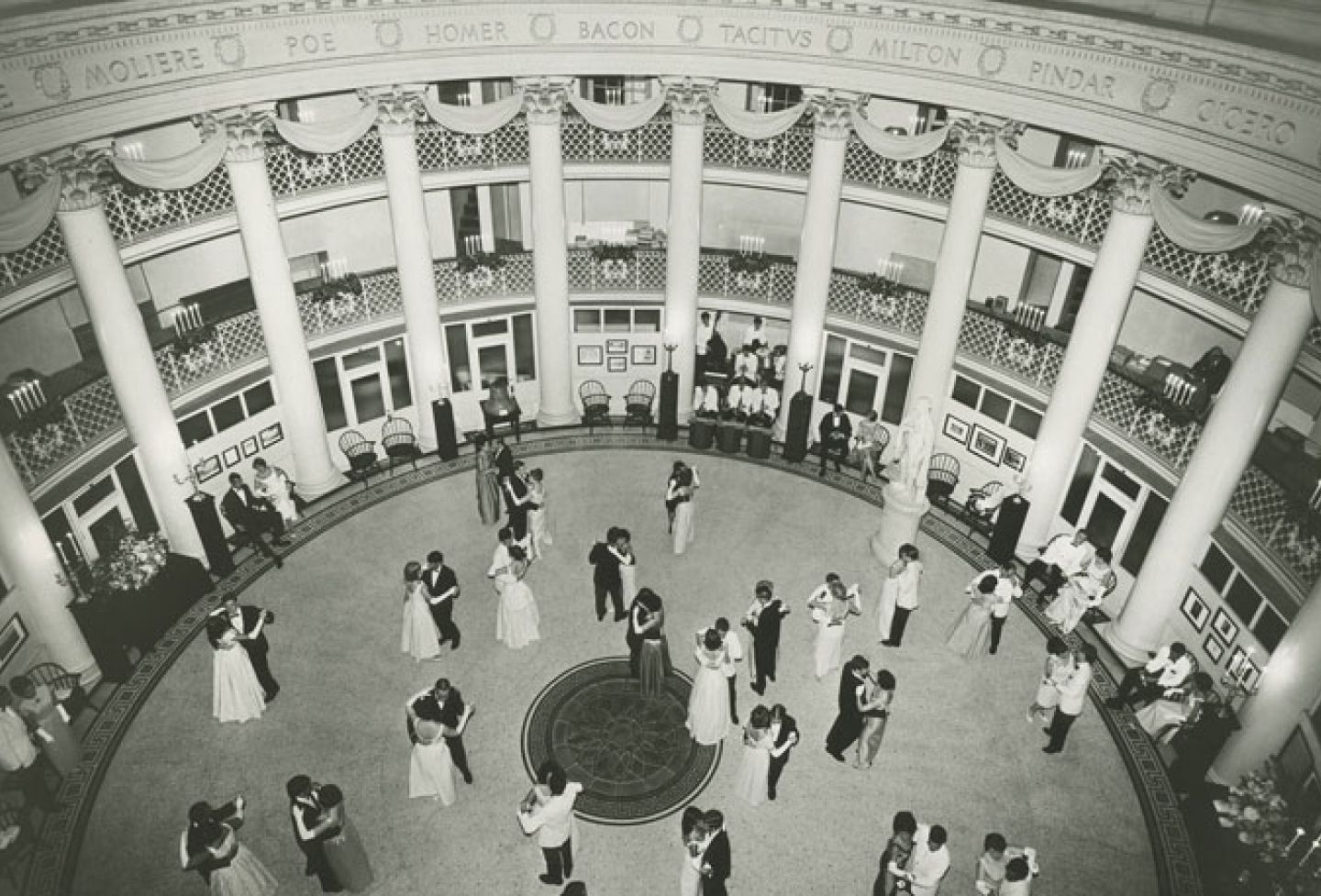
The third annual Restoration Ball, sponsored by the society, was held on May 15, 1965. In its early years, the ball was held in the Dome Room of the Rotunda.
Founded in 1819, the University of Virginia School of Law is the second-oldest continuously operating law school in the nation. Consistently ranked among the top law schools, Virginia is a world-renowned training ground for distinguished lawyers and public servants, instilling in them a commitment to leadership, integrity and community service.


